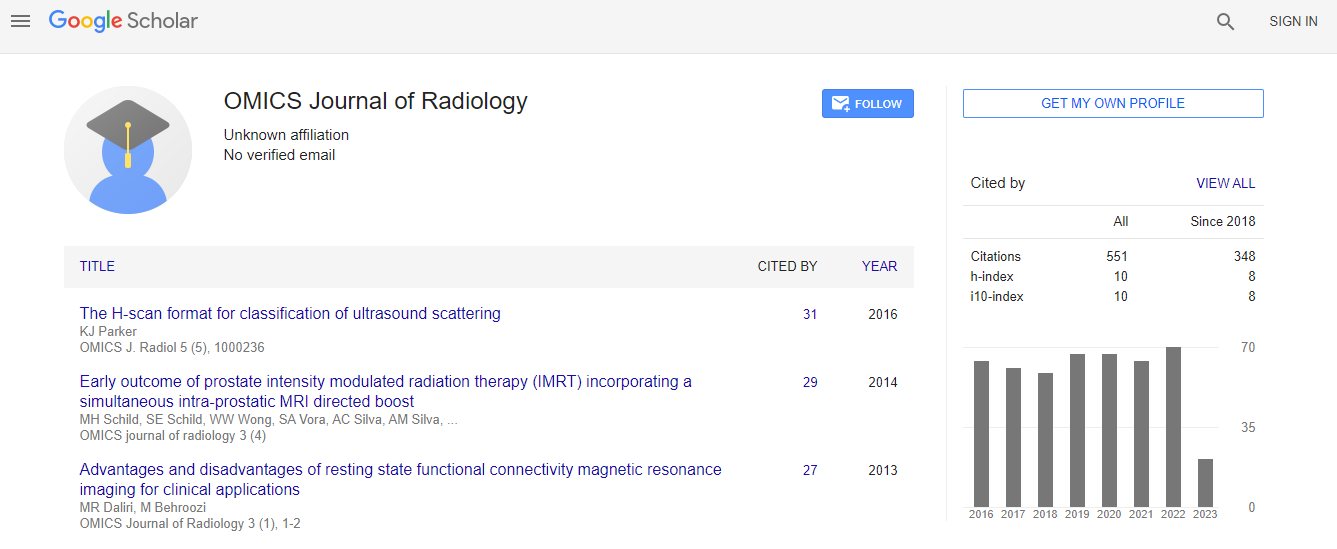Research Article
Psychosocial Stress and Its Predictors among Radiographers in Ghana
Kyei KA*, Amoabeng KA, Sule D, Antwi WK and Anim-Sampong SDepartment of Radiography, University of Ghana, Accra, Ghana
- Corresponding Author:
- Kofi Adesi Kyei
Department of Radiography
School of Biomedical and Allied Health Sciences
College of Health Science, University of Ghana, P.O. Box KB 143, Korle-Bu, Accra, Ghana
Tel: +233-207007124
E-mail: kakyei@chs.edu.gh
Received Date: November 21, 2016; Accepted Date: December 20, 2016; Published Date: December 26, 2016
Citation: Kyei KA, Amoabeng KA, Sule D, Antwi WK, Anim-Sampong S (2016) Psychosocial Stress and Its Predictors among Radiographers in Ghana. OMICS J Radiol 5:245. doi: 10.4172/2167-7964.1000245
Copyright: © 2016 Kyei KA, et al. This is an open-access article distributed under the terms of the Creative Commons Attribution License, which permits unrestricted use, distribution, and reproduction in any medium, provided the original author and source are credited.
Abstract
Background: Stress is a feeling of strain and pressure and can be defined as the disparity between comprehension of the requirements on one side and the ability to cope with this demand on the other side. Psychosocial stress results when it is recognised that perceived threats, real or even imagined, may require unavailable resources.
Aim: The study was aimed at investigating psychosocial stress, its predictors and coping mechanisms among radiographers at the study site.
Methods: A cross-sectional survey was used for the study. A questionnaire consisting closed ended questions and sectioned into 8 parts was developed and used as a data collection tool for the study. Fifty radiographers were used for the study. SPSS, version 20 was used in the data processing and analysis.
Results: A response rate of 90.9% was achieved for the study. The results showed that 72% radiographers had lost interest in the work. Also, 78% radiographers revealed they had to work with inadequate equipment and accessories. Also, 70% of the respondents revealed that they were not exposed to courses relevant to their profession. Most radiographers also experienced a higher workload.
Conclusion: The general physical working environment, the experience of radiographers concerning their workstation, the non-utilisation of radiographers’ skills and abilities and the absence of staff exposure to necessary courses were rated as a moderate source of psychosocial stress. Role ambiguity was rated as a very low source of psychosocial stress. Role conflict and workload were rated as a high source of psychosocial stress.

